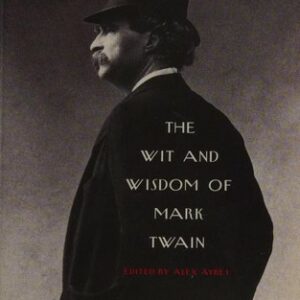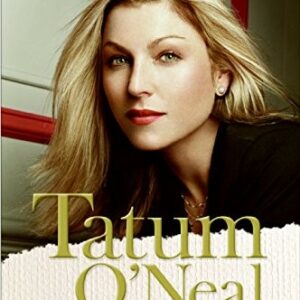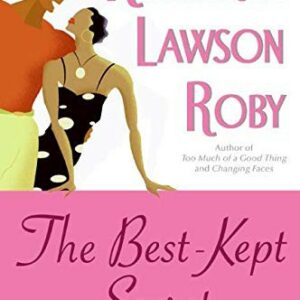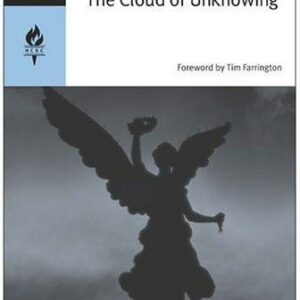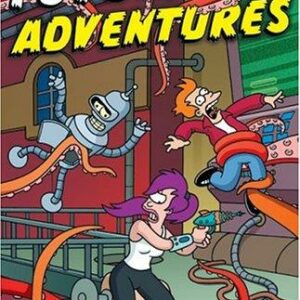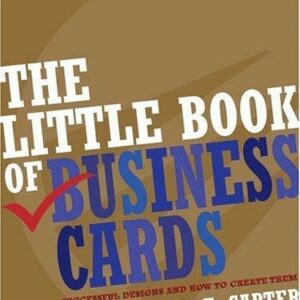Chain Gang All Stars
$27.00
| Title | Range | Discount |
|---|---|---|
| Trade Discount | 5 + | 25% |
- Description
- Additional information
Description
A NEW YORK TIMES TOP TEN BOOK OF THE YEAR • FINALIST FOR THE NATIONAL BOOK AWARD IN FICTION • A READ WITH JENNA BOOK CLUB PICK • NATIONAL BESTSELLER • Two top women gladiators fight for their freedom within a depraved private prison system not so far-removed from America’s own in this explosive, hotly-anticipated debut novel from the New York Times bestselling author of Friday Black • LONGLISTED FOR THE ANDREW CARNEGIE MEDAL FOR EXCELLENCE
“This book is so good. Brutal subject matter, beautiful writing. This one is from the heart.” —Stephen King
A Best Book of the Year: The New York Times, The Washington Post, NPR, Elle, Esquire, Chicago Tribune, Lit Hub, Kirkus Reviews
“Like Orwell’s 1984 and Atwood’s The Handmaid’s Tale, Adjei-Brenyah’s book presents a dystopian vision so…illuminating that it should permanently shift our understanding of who we are and what we’re capable of doing.” —The Washington Post
She felt their eyes, all those executioners…
Loretta Thurwar and Hamara “Hurricane Staxxx” Stacker are the stars of the Chain-Gang All-Stars, the cornerstone of CAPE, or Criminal Action Penal Entertainment, a highly popular, highly controversial profit-raising program in America’s increasingly dominant private prison industry. It’s the return of the gladiators, and prisoners are competing for the ultimate prize: their freedom.
In CAPE, prisoners travel as Links in Chain-Gangs, competing in death matches before packed arenas with righteous protestors at the gates. Thurwar and Staxxx, both teammates and lovers, are the fan favorites. And if all goes well, Thurwar will be free in just a few matches, a fact she carries as heavily as her lethal hammer. As she prepares to leave her fellow Links, Thurwar considers how she might help preserve their humanity, in defiance of these so-called games. But CAPE’s corporate owners will stop at nothing to protect their status quo, and the obstacles they lay in Thurwar’s path have devastating consequences.
Moving from the Links in the field to the protestors, to the CAPE employees and beyond, Chain-Gang All-Stars is a kaleidoscopic, excoriating look at the American prison system’s unholy alliance of systemic racism, unchecked capitalism, and mass incarceration, and a clear-eyed reckoning with what freedom in this country really means from a “new and necessary American voice” (Tommy Orange, The New York Times Book Review).The Freeing of Melancholia Bishop
Part I
Hurricane Staxxx
B3
Teacup
The Bandwagon
Electric
Hendrix “Scorpion Singer” Young
The Van
Personhood Link
Circuit
Sports Central
Salt Bath
Simon
The New
Food
Door Four
Stable
Part II
Simon Craft
Children of Incarcerated People
Vega
The Board
Melee
To Be Influenced
The Art of Influence
Sing- Attica- Sing
Vacation
Grounded
Simon J. Craft
Sung
Babe?
The Ride
McCleskey
Hamara
Presser
We the Enslaved
Interview
Kai
Balloon Archway
The Farmers Market
Deane’s Creams
This
Part III
Sunset Harkless
Tear Gas
The Legend of One-Arm Scorpion Singer Hendrix and the Unkillable Jungle Craft
Bad Water
The Regional
Preparation
The Drive
The Morning Of
Shareef
The Feeling
Yes
Through the Door
Season 33
Suck My Dick, America
BlackOut
Game
Colossal
Freeing Day
Loretta Thurwar
Acknowledgments*Finalist for the National Book Award for Fiction*
*One of the New York Times‘ Top Ten Books of the Year*
*Winner of the ALA Alex Award*
*Finalist for the Goodreads Choice Awards*
*Longlisted for the New American Voices Awards*
*Longlisted for the Center for Fiction First Novel Prize*
*Longlisted for the Aspen Words Literary Prize*
*Longlisted for the Carnegie Medal for Excellence in Fiction*
*Longlisted for the Dublin Literary Prize*
Named A Best Book of the Year by:
New York Times Book Review, NPR, Washington Post, Chicago Tribune, Elle, Esquire, the New York Public Library, Goodreads, Book Riot, Polygon, Financial Times, Kirkus, Publishers Weekly, Shelf Awareness, Readers Digest, Electric Literature, WBEZ’s Nerdette, The Globe and Mail, The Messenger, Library Journal, and The Northforker
*May Selection for The Today Show’s Read With Jenna Book Club*
*Roxane Gay’s May Selection for the Audacious Book Club*
*A New York Times Book Review Editors’ Choice*
*New York Times Notable Book of the Year*
“This book is so good. Brutal subject matter, beautiful writing. This one is from the heart.”
—Stephen King
“This book will change you!…A masterpiece.”
—Jenna Bush Hager, The Today Show’s #ReadWithJenna
“An act of protest…in a voice that belongs only to Adjei-Brenyah, who bends the lurid into the lyrical—pretty words about hideous deeds. Some of his best fight sentences sound as if Joe Rogan had fallen into a trance and assumed the diction and rhythms of Toni Morrison. If you recoil at that unholy fusion, that’s kind of the point; and the author keeps pulling off this shock, page after page…There’s more than a little George Saunders in these high jinks…The novel is a thorough display of authorial control…As the plot careers forward, Adjei-Brenyah uses footnotes as tethers between fiction and reality, reminding us that his gladiatorial farce is just a little tragicomic leap from an extant American horror…The society in which [these characters] live defines them by their worst deeds, but the writer of this novel refuses to.”
—New York Times Book Review
“[Adjei-Brenyah] belongs on anyone’s shortlist of great new American writers.”
—Chicago Tribune
“Like Orwell’s 1984 and Atwood’s The Handmaid’s Tale, Adjei-Brenyah’s book presents a dystopian vision so upsetting and illuminating that it should permanently shift our understanding of who we are and what we’re capable of doing…So raw and tragic and primal is Chain-Gang All-Stars that despite its futuristic elements, it has the patina of some timeworn epic…Shockingly intimate and moving.”
—Washington Post
“Epic…Intoxicating…It is a testament to Adjei-Brenyah’s idiosyncratic talents as a satirist that this premise…feels disquietingly plausible by the novel’s end.”
—The Atlantic
“Chain-Gang All-Stars is an extension of everything Adjei-Brenyah does so well: juggle love with death, satire with pain, the impossible with the possible…In ballad-like chapters, which move with the speed and emotional care of anime fight scenes, Adjei-Brenyah weaves a world of sci-fi torture and bloody profit, but a world not totally scrubbed of hope. In doing so, he doesn’t reinvent the genre novel so much as make it his own. The new maestro of dystopian lit has arrived.”
—Wired
“Vividly imaginative and startling in its clarity of intent…A sort of The Hunger Games meets Gladiator meets WWE meets the modern private prison system.”
—Elle
“Chain-Gang All-Stars surpasses all expectations…Adjei-Brenyah’s acerbic vision lands like a lightning bolt of truth.”
—Esquire
“Gladiator meets Mad Max at the penal colony in the brutal, world-building latest from Adjei-Brenyah.”
—Entertainment Weekly
“So shocking and moving that it might just wake us up.”
—Ron Charles, CBS’ Sunday Morning
“[A] ferocious debut novel…[An] indicting commentary on a nation unmoored from its morality…Adjei-Brenyah does not flinch. Neither does he miss his targets, because he has the stiff winds of history at his back…With Chain-Gang All-Stars he lets us think we’re reading a satire, but soon reveals a mirror of our dystopian days that lie not too far away.”
—Boston Globe
“A rumbustious satire of the criminal justice system, a book that is far more entertaining than an attempt to convince its readers of the case for prison abolition has any right to be.”
—The Guardian
“One of the most exciting young writers in America. His work is urgent, engaging, wildly entertaining, formally bold, and politically electrifying. Read one page, any page, and you’ll see what I mean.”
—George Saunders, author of Liberation Day
“A complex, brutal, beautiful, panoramic takedown of the prison-industrial complex… At once original, its own fresh creation, and clearly part of a lineage of American literature that links the opening ‘Battle Royal’ chapter in Ralph Ellison’s Invisible Man to Native Son by Richard Wright, Soul on Ice by Eldridge Cleaver and Soledad Brother by George Jackson…Adjei-Brenyah’s distinguished novel updates this tradition to encompass our dizzying, barbaric, performative and capitalistic digital age.”
—Minneapolis Star-Tribune
“Dazzling and mightily ambitious… A stunningly original and unflinchingly honest piece of satiric genius, Chain-Gang All-Stars not only showcases the horrific spectacle of the prison industrial complex but highlights how everyone is somehow complicit.”
—Vulture, “Best Books of the Year So Far”
“A clear-eyed critique of our country’s prison system, along with the profit and racism inherent in them.”
—Salon
“[Adjei-Brenyah’s] gripping, maximalist fiction has created a new paradigm for dystopian satire—and announced [him] as one of the most exciting literary talents of his generation…With a burgeoning body of work that is both painfully topical and thrillingly cinematic, he sits at the vanguard of a new kind of novelist: the writer as not just an artist and an entertainer but a true humanist capable of attracting vast, untapped readerships. The result is equal parts exhilarating and profound…[Chain-Gang All-Stars] throbs with a soulful, anarchic intimacy, girded by vivid backstories that burrow beneath the hard-drawn fault lines of race and class and whatever constitutes a ‘criminal’ mind. It’s also full of great characters, with names so chewy they have an almost visceral mouthfeel.”
—Esquire, “The End of the World, According to Nana Kwame Adjei-Brenyah”
“Adjei-Brenyah’s writing transports us to a crossroads of love and pain, life and death, oppressor and oppressed, real and speculative…The complicated interplay between the fictional story on the page and the very real critique Adjei-Brenyah invokes produces a novel that resists a long history of American culture burdening Black literature with the mark of sentimentalism…He conjures a captivating world in Chain-Gang All-Stars that treads the line between the possible and impossible; as readers, we are arrested by the truths that feel uncomfortably easy to identify in our own world today…Chain-Gang All-Stars, in its refusal to provide an easy blueprint for eradicating egregious regimes like the prison industrial complex, makes the simple (but not easy) request that we linger with the ugly contradictions undercutting American society and the human condition. While we cannot wipe our hands clean, perhaps, in this reckoning, we might be able to glean something that looks like transformation. Perhaps, there, life can be precious once more.”
—Los Angeles Review of Books
“Given how incredible his debut collection was and is, it is no surprise to me that Adjei-Brenyah’s debut novel is this extraordinary! Told with bold, muscular prose, this book is filled with surprising tenderness. Some of the best and most beautiful descriptions of action and violence I have ever read, which is not to say the book celebrates violence so much as it uses violence to explore American incarceration by imagining it as spectacle. As big as it is dazzling. Just wild how good and original this book is. A revelation!”
—Tommy Orange, author of There, There
“A masterpiece. He is brilliant and sensitive, and he manages to write about things that matter (to him and to us) while drawing on a panoply of influences, from hip-hop to anime to 19th-century Russian literature, which enables him to deeply engage the widest possible audience, an ability I very much admire.”
—Jennifer Croft, New York Times Book Review’s “By the Book”
“A visceral, heart-wrenching read that treats systemic issues with delightfully speculative skepticism and broken people with compassion and dignity.”
—Shondaland
“As vital as it is brutal. Nana Kwame Adjei-Brenyah illuminates darkness with the electricity of his prose. The massive weight of the subject is matched by the sheer scope of Adjei-Brenyah’s imagination. A startling, important novel that will inspire and inform many conversations.”
—Charles Yu, author of Interior Chinatown
“A cross between Gladiator and The Hunger Games…[An] acclaimed master of our futuristic nightmares…a keen observer of racial and socioeconomic disparities that result in a high number of Black people incarcerated. While this is set in the future, it feels uncomfortably close to the present.”
—Oprah Daily
“Chain-Gang All-Stars might have the most exhilarating opening chapter of a book I’ve ever read. Right from the jump, Adjei-Brenyah pulls you into a gritty, gory world where prisoners fight one another to the death to earn their freedom—and people love it…He writes with such vigor, you’re transported right into the arena; but you also see the parallels to our own issues with mass incarceration, classism, and capitalism.”
—Elle, “Elle Editors Share the Books They Loved Best in 2023”
“In this audacious, explicit novel of convicts trying to survive and possibly gain freedom by taking part in gladiator battles, there is compassion and love. Added in are incredible commentaries in the form of footnotes, razor-sharp descriptions of a population addicted to reality TV competition and the resiliency of the human spirit.”
—Daily Kos
“A brutal, heart-wrenching story that feels so close to reality…A tale of survival and resistance in an unfair prison system…about a group of prisoners who decide to fight to the death for the one thing they want most: freedom.”
—Cosmopolitan
“A defiant, awe-inspiring novel that will be read, studied, and celebrated for generations, Chain-Gang All-Stars leads with love. Adjei-Brenyah writes with stunning compassion and moral clarity as he interrogates every facet of our carceral world and the American spectacle of violence, never losing sight of the human cost of systemic injustice. Readers will be forever changed by this book.”
—Jessamine Chan, author of The School for Good Mothers
“Remarkable, cinematic.”
—Joumana Khatib, “The Book Review” podcast from New York Times
“Adjei-Brenyah’s sentences are nimble, his chapters brisk yet full of brio. He knows what he’s doing, and it’s this innate authority that makes Chain-Gang All-Stars so compelling—right up to the final, fatal blow.”
—The Telegraph
“Indelible…Deservedly acclaimed, Adjei-Brenyah is as commanding a storyteller as he is a world-builder, and drives the action inexorably towards the only possible conclusion.”
—Daily Mail
“This is my favorite book so far of 2023, a novel that takes a hard look at us, at reality TV, at complicity, at the way too many of us see violence as justice. It asks us tough questions about how we treat bodies that we judge unfit for the system. It’s also full of cinematic action-packed fight scenes, heart-breaking twists, and a queer sapphic romance. What’s not to love?”
—Book Riot
“It’s thrilling, it’s fast paced…Adjei-Brenyah deftly incorporates facts about prison, inviting readers to take a closer, empathetic look at America’s prison system.”
—Kathy Burnette, MPR’s “Ask a Bookseller”
“One of the most original and thought-provoking novels to be published in recent memory…The prose is very beautiful, and the plot and character arcs are heartbreaking. The pacing is excellent, and I was invested from start to finish. All in all, Chain-Gang All-Stars is the whole package…It held me in thrall and will surely be one of my favorite books of the year.”
—Fredericksburg Free Lance-Star
“Adjei-Brenyah’s novel punches hard…The world Adjei-Brenyah has created sings with the humanity of its characters…I’m not sure what to do about the prison-industrial complex. But I think that maybe the first step is to share books like Chain-Gang All-Stars.”
—Pittsburgh Post-Gazette
“Chain-Gang All-Stars makes explicit how the spirit erodes as the body becomes currency. Adjei-Brenyah writes sharply about the economy of spectacle and the fickle alchemy between futility and hope.”
—Raven Leilani, author of Luster
“In a narrative world where the real is growingly more unbelievable than the make believe, Chain-Gang All-Stars is an uncanny, singular feat of literature. I’ve never read satire so bruising, so brolic, so tender and really, so pitch-perfect. It’s nuts brilliant. Just read it!”
—Kiese Laymon, author of Heavy: An American Memoir
“Adjei-Brenyah may have the buzziest book of the year…A ferocious attack on America’s for-profit prison systems.”
—Goodreads’ Most Anticipated Books of 2023
“Epic… Like a more politically committed Infinite Jest, it teems with the voices of broken people, virtuoso prose and footnotes which provide facts about America’s real carceral state and characters’ backstories…Involving and affecting…The writing is poignant and poetic…A novel to immerse yourself in this summer and think about long after.”
—iNews
“Masterful…Chain-Gang All-Stars’ depiction of a racist, hyper-capitalist carceral state is an undeniable echo of our world, but it’s not the only one. At the heart of this book is the capacity of incarcerated people to resist and rewrite the rules of their imprisonment.”
—Electric Literature
“A satirical and searing novel that never loses touch of its characters’ beating hearts.”
—Lincoln Michel, BOMB
“One of our generation’s most exciting writers.”
—Chicago Review of Books
“[A] blazing debut novel…A damning indictment of mass incarceration, systemic racism, and the grotesqueries of unfettered American capitalism, Chain-Gang All-Stars is also a breathless dystopian thriller.”
—Lit Hub
“Adjei-Brenyah’s debut novel is equal parts Squid Game and Riot Baby, but also brought to mind Ralph Ellison’s Invisible Man…Adjei-Brenyah writes characters that are both larger than life and intimately human…It is funny, it is brutal, and it is an extremely necessary text.”
—Tor.com
“With Chain-Gang All-Stars, Adjei-Brenyah has taken his fiction to a whole new level.”
—WPR’s “Beta
“A transformative, clear-eyed critique. Chain-Gang All-Stars is a feat of world-building and Juvenalian satire that is also an indictment…Kinetic, ambitious…Deeply moral and informed but not preachy. Its correspondences with the US [carceral] system always serve the story and relentlessly heighten its stakes. [Adjei-Brenyah] distills and dramatizes the genius of the abolition community and its decades of work into a new kind of allegorical fiction—one with a whole movement behind it.”
—4Columns
“It is brilliant, it is brutal. This book is going to win so many awards!”
—Liberty Hardy, WBEZ’s “Nerdette”
“With his sharp eye for satire and reverence for humanity, Adjei-Brenyah’s latest explores the exploitation, violence, and false promises of the prison industrial complex, capitalism, and the country itself.”
—The Millions
“Having burst on the literary scene with his 2019 collection Friday Black, [Adjei-Brenyah’s] debut novel matches, even surpasses, the roiling, vibrant energy of his shorter fiction, delivering both an impassioned critique of America’s broken justice system and a heartrending queer love story…A novel that eschews didacticism and instead provokes discussion…The true power of Chain-Gang All-Stars is that the dystopia it depicts no longer reads like a fanciful thought experiment but a horrible foreshadowing of the future.”
—Locus
“A brutal, futuristic view of a gladiatorial privatization of our current prison system. [Adjei-Brenyah] does an incredible job of creating stories that take you beyond the edge of your tolerance, urging you to see the parallel social commentary beneath. I always have to take a moment to catch my breath when I set his work down and this full-length work is leaving me gulping for air and truth.”
—Carrie Koepke from Skylark Books, Columbia Daily Tribune
“Chain-Gang All-Stars should pique your interest if titles like Octavia Butler’s Parable of the Sower and Atwood’s Handmaid’s Tale are more your vibe.”
—The Week
“An ambitious, bonkers, beast of a novel…Within this fight-to-the-death dystopia, we primarily follow Loretta and Hurricane, a pair of lovers who fight on the same team or ‘chain,’ but the novel deftly expands its perspective outward, encompassing everyone from prison cooks and audience members. In doing so, the story makes everyone complicit in the horror that’s unfolding, right down to those of us reading about it at home.”
—Paste
“At once a kaleidoscopic, imaginative examination of America’s unjust prison system, and a fantasy-tinged spectacle, Chain-Gang All-Stars is likely to excite and provoke in equal measure.”
—Our Culture
“A searing debut with an unforgettable voice, Chain-Gang All-Stars will force you to reevaluate what freedom in America really means.”
—Lit-Reactor
“A brilliant and cutting send-off of reality television, football, and mass incarceration.”
—CrimeReads
“Fantastically confident, nimble, entertaining and impassioned…[Adjei-Brenyah] ultimately asks us to reassess our tired, harmful thinking about what prison is really for. He demands that we imagine something better.”
—Times Literary Supplement
“Enthralling…An unmissable read.”
—The Independent
“Breathtaking and pulse-pounding…Adjei-Brenyah delivers insightful critiques of the prison-industrial complex, capitalism, and the ways in which Hollywood and celebrity culture exploit Black talent. Both the political allegory and the edge-of-your-seat action work beautifully. Readers will be wowed.”
—Publishers Weekly, starred review
“An acerbic, poignant, and, at times, alarmingly pertinent dystopian novel…In his debut short story collection, Friday Black, Adjei-Brenyah displayed a prodigious flair for deadpan satiric narratives set in alternate realities that often seem uncomfortably close to our own, especially regarding race and class divisions. With his first novel, he proves he can sustain his outrage, imagination, wit, and compassion for a deeper dive into the darker reaches of the American soul…Adjei-Brenyah displays his impressive range of tone and voice…It is an up-to-the-minute j’accuse that speaks to the eternal question of what it truly means to be free. And human. Imagine The Hunger Games refashioned into a rowdy, profane, and indignant blues shout at full blast.”
—Kirkus, starred review
“Searingly entertaining.”
—Publishers Weekly, “An Interview with the Year 2023”NANA KWAME ADJEI-BRENYAH is the New York Times-bestselling author of Friday Black. His work has appeared in The New York Times Book Review, Esquire, The Paris Review, and elsewhere. He was a National Book Foundation’s “5 Under 35” honoree, the winner of the PEN/Jean Stein Book Award and the Saroyan Prize, and a finalist for the National Book Critics Circle’s John Leonard Award for Best First Book, along with many other honors. Raised in Spring Valley, New York, he now lives in the Bronx.
1. Chain-Gang All-Stars is a work of speculative fiction that immerses readers in the United States of the near future, a technologically advanced society that is still troubled and defined by the laws, institutions, and social issues that we see today. Reflect on this setting. Why do you think Adjei-Brenyah chose to set the story against this backdrop?
2. Who are the Chain-Gang All-Stars and what is the CAPE program? How did the characters end up in this program and what made them join?
3. When we first meet Loretta Thurwar in the prologue, she is a new Link going up against Melancholia Bishop, a renowned fighter approaching High Freed status. When the novel continues, three years have passed and Thurwar is now in Bishop’s position as a Grand Colossal. What was the significance of her first fight, and how has her character changed since then? What keeps her fighting?
4. Chapter by chapter, Chain-Gang All-Stars brings readers into the stories of different stakeholders in the CAPE program, from Links and executives to fans and family members. Whose perspective were you most curious about and why? How did the multiple points of view reveal the many facets of the conflicts that are central to the story?
5. The lives of hard-action-sports fans are revealed through the point of view of Wil and Emily, a couple that watch the BattleGrounds and reality series LinkLyfe together. A reluctant fan, Emily’s interest in hard-action-sports teeters between horror and fascination. Why do audiences watch the matches, and how do they cope with the realization that they are complicit in these acts of violence? How is the reader also implicated in this?
6. On page 36, Thurwar explains that “The culture of Chain-Gang was death.” Describe the dynamic between the Links on the Angola-Hammond chain as well as the other chains in the circuit. How do the culture of death and the constant feelings of distrust and fear impact the chains? What do Thurwar and Staxxx attempt in order to gain trust and build comradery within Angola-Hammond?
7. Who is Tracy Lasser and what is her connection to the Angola-Hammond chain? How does her act of protest on live TV echo the antiracist movements in media, particularly sports media, that we’ve seen in recent years?
8. In the novel, Hendrix Young is one of the few characters that gets to speak in the first person. Why do you think the author chose to reveal Hendrix’s story from his own perspective, and how did this choice impact your understanding of his character?
9. How do society’s scientific advancements exacerbate the violent conditions experienced by the prisoners, particularly in the novel’s experimental prisons?
10. The story of Simon J. Craft is told through a fragmented narrative style. How is this literary choice used to illuminate the impact of solitary confinement on the mind?
11. On page 192, Hendrix explains, “Everybody got a name: a story of truths and lies.” Where do the nicknames of the Links come from and how do they come to define each character? Why do you think that it was notable for Thurwar to use her own name rather than a moniker?
12. Chain-Gang All-Stars imagines a world of brand-sponsored, pay-per-view prison entertainment to bring attention to the role of capitalism in the carceral system today. Before reading this novel, were you aware of the prison-industrial complex, prison labor, or the role that corporations play in the carceral system? How does the novel’s dramatization of these stakes allow readers to reflect critically on the real-life implications of this system?
13. Through Mari’s narrative, readers are brought into the lives of families of incarcerated people and the activists working to abolish the carceral system, efforts that echo current calls to defund the police and abolish prisons. What do these chapters reveal about the work of community organizers and activists? Did you learn anything new about these movements? How does Mari’s experience of having an incarcerated father inform her acts of protest over the course of the novel?
14. How would you characterize the novel’s ending and the freedom that Thurwar and Staxxx reach at the end? Triumphant? Mournful? A little bit of both?
15. During the final BlackOut, Staxxx and Thurwar discuss what they will do with their lives when they are free, giving readers the sense that there is more work to be done. What do they decide to do and what do you imagine happening for the novel’s characters, as well as the CAPE program, after the ending?
16. Adjei-Brenyah’s novel combines fiction with social justice by incorporating footnotes that provide readers with real-life stories and statistics about the experiences of incarcerated people in America. In the acknowledgments, Adjei-Brenyah writes, “This book is possible because of so many thinkers, activists, writers, and advocates who helped grow my point of view and guide research that deepened my understanding of our carceral world and country.” How did these footnotes add to the realism of the novel? What did you learn and what stood out to you? Did your perspective on the criminal justice system change after reading this story?
The Freeing of Melancholia Bishop
She felt their eyes, all those executioners.
“Welcome, young lady,” said Micky Wright, the premier announcer for Chain- Gang All- Stars, the crown jewel in the Criminal Action Penal Entertainment program. “Why don’t you tell us your name?” His high boots were planted in the turf of the BattleGround, which was long and green, stroked with cocaine- white hash marks, like a divergent football field. It was Super Bowl weekend, a fact that Wright was contractually obligated to mention between every match that evening.
“You know my name.”
She noticed her own steadiness and felt a dim love for herself. Strange. She’d counted herself wretched for so long. But the crowd seemed to appreciate her boldness. They cheered, though their support was edged with a brutal irony. They looked down on this Black woman, dressed in the gray jumpsuit of the incarcerated. She was tall and strong, and they looked down on her and the tight coils of black hair on her head. They looked down gleefully. She was about to die. They believed this the way they believed in the sun and moon and the air they breathed.
“Feisty,” Wright said with a grin. “Maybe that’s what we should call you—Little Miss Feisty.”
“My name is Loretta Thurwar,” she said. She looked at the people all around her. There were so many of them, so many waves of humans who would never be the object of such cruel attention. Would never know how it made you feel, both tiny and all- powerful. How the thrum of thousands was so loud, so constant, it could disappear from your ears but continue to roar as something felt in the body. Thurwar gripped the weapon she’d been given: a thin spiraling corkscrew with a cherrywood handle. It was light and simple and weak.
“Not Little Miss Feisty, then?” Wright said, walking a wide orbit around her.
“No.”
“That’s probably for the best, Loretta.” He stepped toward his box. “I hate wasting good names anyway.” He laughed and the crowd echoed him. “Well, Loretta Thurwar”—he threw his playful condescension directly at her, chopping her first name into three hard syllables, using a singsong child’s voice for her last—“welcome to the BattleGround, baby.”
There was an electric cough in the air and Thurwar was pulled down so forcefully she feared for a moment her arm had been dislocated at the shoulder. Kneeling, not knowing what else to do, she started to laugh. Chuckling first, then deep laughter. The feeling of hold that came from the magnetic implants in her arms was actually one of gentle massage under the skin. She could wiggle her fingers freely, but her wrists were glued to the platform. The ridiculousness of it all. She laughed until she felt out of breath, then laughed some more. The bells began to sound.
Wright screamed into the air, “Please rise for Her Majesty!” He ran the rest of the way to his announcer’s box.
The crowd stood on their feet. They held themselves still and erect. For her.
She walked onto the faux football field. Aluminum alloy on her arms. Braids that stopped at the back of her neck. Exposed shoulders each tattooed with the WholeMarket™ logo. A series of rods jutted out from her chest guard and circled her muscled abdomen to form a sleek cage. It was a custom creation. Thurwar had watched, even cheered, the first time she’d seen that the metallic pieces, initially thought to be exclusively defensive, were more. She’d been watching, huddled with the others in her cell block around the streaming video feed, when the woman had removed two of the rods from her guard and pressed them into Slingshot Bob’s eyes.
And now Thurwar was seeing them up close. This was Melancholia Bishop’s final fight. Bishop had made it. She had done what no woman before her had done, survived three years on the Circuit. Three years of slamming down her hammer, Hass Omaha, and swiping her mace, Vega. Three years conquering souls.
“Drowned King County’s very own Queen of the Damned!”
All she had in her hands was her helmet. Melody’s Helm. Crusaderstyle, made of tin with a gold cross down its middle.
“The Annihilator, the Bad News Bitch, the Death Songstress herself!”
The seventh bell rang; the people screamed. For years this had been their sacred ritual. The seven bells of Melancholia Bishop. They’d seen her wipe scum o_ the earth. They’d seen her kill women and men whom they’d once claimed to love. Now she stood and looked out at them for the last time. Soon, she would be free.
Melancholia
Melancholia
Melancholia
The crowd chanted. Her brown eyes explored the bleachers. Then she raised the helm above her head. Once it was on, she was home.
Melancholia
Melancholia
Melancholia
“For the last time ever,” Wright cheered, “please help me welcome the winningest woman ever to step on the BattleGround. The Mistress of the Murder Ballad. The Sacred Sweetheart. The Crusader. The baddest the planet has ever seen. Your very own Melody ‘Melancholia Bishop’ Price!”
Your very own, Thurwar thought, rattled by the force of the love that exploded out from the audience. They loved her so, and still, this woman, despite it all, belonged to none of them. She had an aura about her that made that clear. It was enough to push Thurwar’s eyes down to the ground. As if the woman in front of her truly were royalty.
Thurwar watched, bowed in her Keep, an impossible power in front of her. The hammer and the mace. On one side of the field there was a knight in her armor. On the other, there was Thurwar in a jumpsuit, a corkscrew slick in her clammy hands.
Bishop!
Bishop!
“Any final words for us, Melancholia?” Wright asked.
“What’s left to say?” she said, her voice echoing metallic but familiar through her helmet as she addressed the crowd. “I’m in the same place I started.”
The crowd cheered wildly.
“When I got here, I had two Ms on my back. Two murders. When I leave, I’ll still just have two. But I had to kill so many more people than that to get here.”
“That’s very true. You’ve cleaved through so many,” Wright said. “But any of those stand out to you? So many highlights. And you’ve overcome more than your fair share of doubt. Here on the mountaintop, when you look back down, what are you proudest of?”
“Proud?” A metal face turned toward the sky. Her shoulders bounced and she laughed. The crowd followed awkwardly. Chuckling because this was their queen. As the crowd grew raucous with laughter, Melancholia fell silent. Then was a moment when the crowd seemed not to know what to do next.
“Lock-in!” Wright yelled. Again, a force sounded, this time locking Melancholia Bishop into the platform beneath her. The HMC* that she’d been speaking into flew up and behind her. The crowd let out a small gasp. To force- lock her, to silence her, on her freeing day. It was beneath them. A sudden force- lock was what you gave the despicable, the uninitiated, the unruly, the afraid. And so they turned their noses up at it, but turned them back down just as quickly to take in the history unfolding before them: the freeing of Melancholia Bishop.
“Let’s deathmatch!” Wright yelled.
The loud, empty sound of unlock called through the arena. The women were released upon each other.
Thurwar stood up and she ran, ran directly at the unbreakable woman in front of her. Once she was close enough for it to matter, she leapt in the air and pulled back her fist, clenched around the corkscrew, and aimed to strike. She screamed, thrust down. The neck, the neck. Her body said the neck.
Melancholia snatched her by the wrist, dissolving her force to nothing, then punched her in the gut.
Melancholia
The people screamed to the beat of bass drums. Again and again, they’d seen her “catch and crash,” had seen her drop Hass Omaha or Vega and grab her opponent with one hand before using whichever weapon she still held in the other to deal a death blow. But now she held this nothing by the wrist and threw a bare- knuckled punch. A blow anyone could survive. She was playing with her food. They laughed and cheered and cried. A show-woman to the end.
“Swing through, not at,” Melancholia said. This the people could not know. In her helm, with no HMCs buzzing around—they might distract or affect the fight—the two women on the BattleGround were alone with their words.
Melancholia punched Thurwar again and threw her down to the grass.
Thurwar knew she’d been spared. She didn’t know why. She swallowed the death she’d seen in the moment Bishop had held her. She looked up at the heroic, terrible woman standing above her.
“Can you hear me?” Melancholia asked.
Thurwar scrambled through the field, panting hard, sweeping over the green. She’d lost the corkscrew. She hated herself, an intense, familiar feeling. She was crying. She pitied the sad thing she’d become in that moment, hunched and searching. Frantic and soon dead. But her murderer was speaking to her. “Listen to me,” she said. Then Thurwar felt a kick to the ribs. She rolled over in the grass, gasped air in, and scrambled to her feet again.
She gathered herself and looked at the Crusader. Thurwar wanted to win. She wanted it desperately. She had a furious desire to crush this woman in front of her. She wanted the crowd to weep. For the first time in so long, she wanted to live.
With no weapon at hand Thurwar ran at Melancholia. Before she could leap, she saw that both the hammer and mace were on the ground. The titan was making a game of her life. She sprinted and tackled the woman with the urgency of the dying. They tumbled together briefly, their bodies rushing over white hash marks. Then Thurwar felt a tightness at her scalp. She reached up in the tussle and felt a blow to the chest. She was dragged by her hair to her knees.
“Shave all of it,” Melancholia said, her fist full of Thurwar’s hair. This time Thurwar heard her, understood that she was being given a directive.
“Shave off your hair,” Bishop repeated, her voice hard and low. She punched Thurwar in the face again. Thurwar tasted blood falling from her nose to her lips. Again she was thrown to the ground.
“It’s right in front of you,” Thurwar heard. “Choose now.” Melancholia raised her arms in victory. The whole world screamed.
Thurwar saw it, the coil of metal stuck into the wood. She leapt at it like a snake and in her rush to grab it, she cut her own middle finger deeply. She ignored the blood, rose to her feet, and as she did, Melancholia Bishop turned to her, then reached down and grabbed the hammer.
Thurwar took long, careful steps as she moved in a wide perimeter around Melancholia. The noise had settled to an even roar, but the sound was just an echo now, as was the pain in her body.
“I played their game. You don’t play it.”
“I’m not dying here,” Thurwar said. A long-smothered part of her emerged.
“Then swing through, not at.” Thurwar watched Bishop. “I am very tired,” the other woman said. “Do you understand?”
“I’m not dying here,” Thurwar repeated, the words summoning themselves. She continued to circle Bishop, backing farther away, gathering space to charge. Bishop followed her in a smooth pivot.
“Then swing through, not at. And shave your fucking head. And make them love a version of you. That’s the important part, whatever you do. Love, then get out.”
Thurwar waited. Corkscrew clenched in fist.
Bishop’s knees bent just enough for her stance to say, Come at me. She looked at Thurwar and spoke. “I’m not going to let you live. You are going to choose to live. I’m going to swing across my body. Once the hammer goes I can’t stop it. Understand?”
Thurwar did and she didn’t. She couldn’t. Not then. Bishop reached for her helmet and pulled it off. Even against her dark skin the scars on her neck gleamed. Her black hair was in tight cornrows. Melancholia raised her arms and the crowd screamed anew in delight. Thurwar glanced up at the Jumbotron. It occurred to her then that this god was a woman like her.
Melancholia Bishop smiled briefly once more before her face became hard and murderous.
Thurwar stepped forward toward her destiny. Her left arm pumped into the air. Her hand was cupped loosely, and she shot her right leg up, planting it as hard as she could. She pushed forward, fully immersed in the freedom of building momentum. Her eyes were trained on Bishop’s neck, as supple and human as anyone’s. Her left arm careened back, scooping the air and hurtling it behind her as her left leg jutted up, her knee pulled forward, and her stride grew. She ran.
Mel—
Her left foot fell first, the midsole landed, and she rolled purposefully to her toes before pushing off again. Her body remembered, would always remember, how to run with purpose.
—an—
Again, her arms reversed themselves, slipping precisely past each other as her right leg rose and fell, her stride opening still. She was very close. She thought of nothing, put her trust in her body as it sped forward.
—cholia
Her arms switchbladed and her legs carried. She continued the push and switch of her arms and legs, forging speed. Her body told her, This speed, me, your body is your weapon.
When she was two paces away Melancholia’s arm swung backward, a negative motion, a buildup. She pulled the hammer back, the picture of destructive potential.
Thurwar’s foot came down again. Melancholia came forward, pushing first, then letting the hammer pull her. It swung across the air in a murder song. Thurwar dove toward the ground, tucked in her head and neck, and rolled as the hammer sowed fresh death into nothing. She crouched and then leapt, her right, corkscrewed fist leading. She screamed as she ripped open Melancholia’s jaw.
The silence bore something new in Thurwar. Her body tingled as red fell into her fist. A spattering of blood burst from Melancholia’s lips. The hammer rose briefly and crushed down, just grazing Thurwar’s shoulder as she twisted out of its murderous path. Thurwar jumped onto Melancholia’s back. She wrapped her legs around Bishop’s waist and stabbed hard into the side of Bishop’s neck, then pulled the corkscrew out and punched in again. This time as she tried to pull it out, the screw resisted, caught in the tangle of Bishop’s flesh. Thurwar pulled harder, and when she did, the handle came out alone, the metal screw lost somewhere in Bishop’s throat. With nothing with which to pierce, Thurwar punched Melancholia’s head. She’d given three heavy blows before she felt the champion’s knees buckle.
Bishop swatted weakly behind her at Thurwar, as if at a pesky fly. Her hammer was on the ground. Thurwar drank the sweet, rich silence of absolute awe.
She screamed a roar, and in that moment she was the only sound. She jumped from the woman’s back and Melancholia stood sleepily, somehow, still. Seeing the woman on her feet, Thurwar scrambled to grab the hammer. Her fingers found the grip and Melancholia looked down at her. Suddenly afraid, Thurwar jumped back. Bishop swayed, holding her neck, then letting it go. Her eyes were brown, beautiful, tired, and yet they widened for a moment as she looked at Thurwar, her killer.
Come at me, those eyes said.
Thurwar obeyed. She ran. She brought the hammer like a bomb to the face of its first master, and the people, those people, were silent no more.US
Additional information
| Weight | 23.6 oz |
|---|---|
| Dimensions | 1.3200 × 6.4200 × 9.5400 in |
| Imprint | |
| Format | |
| ISBN-13 | |
| ISBN-10 | |
| Author | |
| Audience | |
| BISAC | |
| Subjects | ny times best sellers 2023 fiction books, best books, urban fiction, husband gifts, best books of 2023, national book award finalists, prime day deals books, mens valentines gifts, chaingang allstars, satire, chaingang allstars book, chain gang all stars by nana kwame adjei-brenyah, friday black, chain gang, chain-gang all-stars, chain gang all-stars, chain gang all stars, FIC049000, gang, tv, television, freedom, lgbt, dystopia, novels, prison, america, FIC055000, new york times, sci-fi, literary fiction, black authors, gangs, Reese's Book Club |


